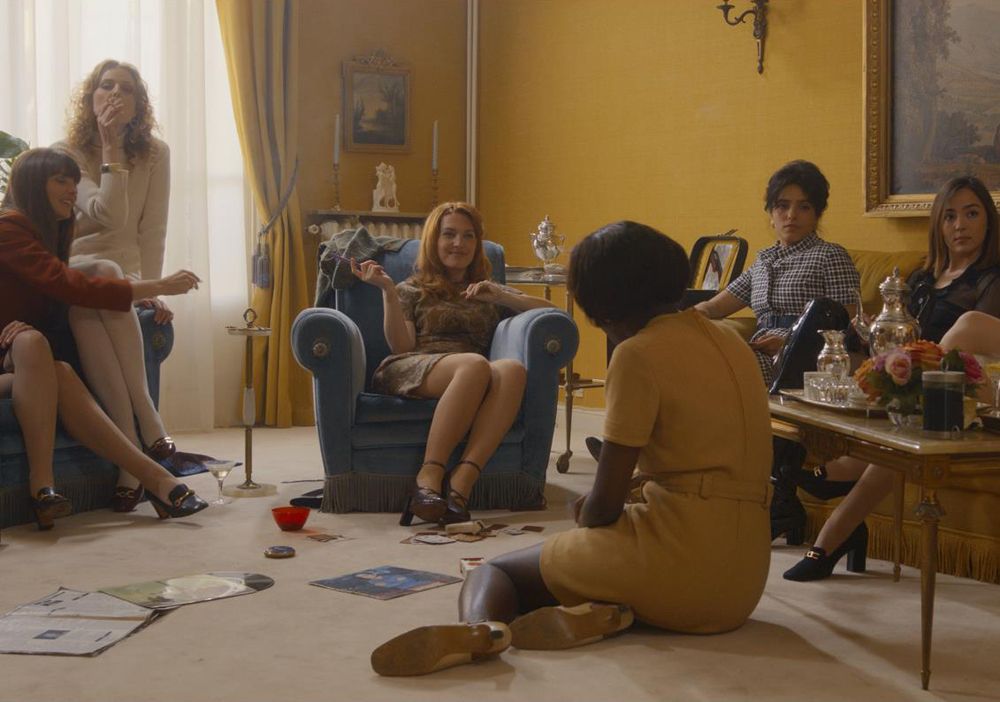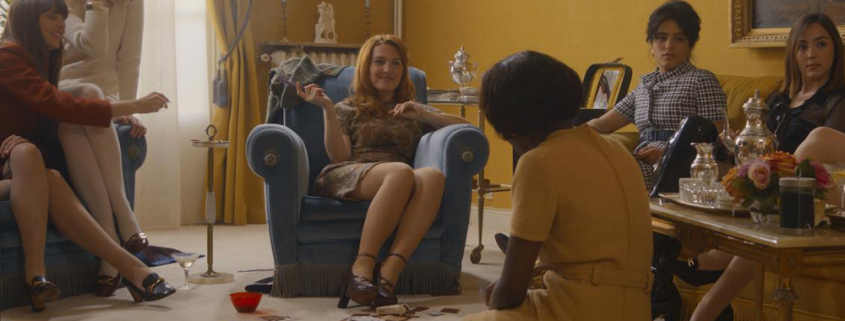REVIEW: ‘Madame Claude’ is evocative of the male gaze

Trigger Warning: This review contains mentions of sexual abuse.
As the first Netflix French biopic dedicated to the woman Vanity Fair praised as “legendary,” “Madame Claude” is, paradoxically, not très bon. The film focuses on the story of its titular character, Madame Claude (Karole Rocher), and her life running Paris’ thriving sex work industry in the 1960s.
It centers on Madame Claude gradually forming a strong relationship with Sidonie (Garance Marillier), a new worker who becomes her “right-hand woman” and closest confidante as Madame Claude navigates challenges in her personal and professional life.
There’s a strong element of the male gaze throughout “Madame Claude.” Ultimately, this physicality feels a bit uncomfortable at times, but it does serve a somewhat greater purpose as the film’s self-referential interpretation of sex work. Women are always portrayed in voyeuristic terms, their bodies magnified and put on display. Even conversations around women trace back to how physically “desirable” they are.
Rocher does a compelling job of portraying Madame Claude, who is aloof and demanding but also vulnerable. She frequently gives voiceover narratives of her issues with physical and emotional love in the past. These issues are then interwoven with scenes of her present-day realities selling intimacy as the lead businesswoman of the sex work industry.
These transitions between time end up a bit jarring and interrupt the flow of the story. However, they’re also a reminder that “Madame Claude” is intended to be first and foremost a biopic. This is a woman whose work is full of tension between public persona and private identity. The tensions in Madame Claude’s life subsequently feed into a larger narrative about the intersection of sex work and women’s identities.
In the film’s desire to portray sex work in all its complexity, though, it leaps headfirst into risqué territory and frequently and excessively makes the most out of its rating for mature audiences. That isn’t at all unwarranted, of course, but it doesn’t really add much to Madame Claude’s development as a character, which is the selling point of the story.
In fact, it’s worth asking if the film ends up conforming to a male gaze even as it seeks to show how women are affected by the sexualization of their bodies and professions.
If the goal of the film was to provide a darker rendering of the challenges associated with sex work, it does an effective job at that. At one point, one of Madame Claude’s workers, Virginie (Liah O’Prey), is physically abused by her clients for $200,000. It leaves Virginie tearfully fearful about the nature of her profession. Other workers are similarly forced to endure degrading, dehumanizing treatment.
However, “Madame Claude” doesn’t really explain any of these scenes and their implied connections to gender-based violence; instead, it chooses to repeatedly showcase the eroticism of women’s bodies. This becomes exhausting for those who want to view women as more than the sexualized objects they’re presented as. It leaves the viewer wanting to fast-forward or skip to the parts that show the main narrative of Madame Claude challenging and taking her place in a man’s world, as marketed in the trailer.
There’s no denying that the film depicts a comprehensive picture of sex work. It’s just that there’s so many graphic scenes that emphasize feminine sensuality that they don’t fully grapple with the gendered dynamics these interactions occur within. The sheer abundance of such scenes scattered throughout don’t execute a meaningful story about how Madame Claude negotiates with the power and politics involved in her job.
There’s some mention of conflicts with powerful men and legal authorities, but it doesn’t particularly lead up to anything purposeful. There’s some speeches from Madame Claude about how men run everything and the injustices of the world, but those feel like contrived moments. There’s an attempt to give Madame Claude some depth through the voiceovers of her past, but the fact that Madame Claude always spells out the events in her past might leave viewers feeling like they aren’t trusted to figure out the details themselves.
In short, there’s no subtlety, which is much needed in a film like “Madame Claude” where context needs to be everything. “Madame Claude” might satiate viewers who want to view the explicit nature of the 1960s Paris sex work industry. For those who want to explore a complex portrait of Madame Claude beyond her mythos, this isn’t that film.
2/5

